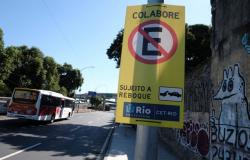Optimizing processes, reducing waste and reusing materials are tasks of the textile sector
The global textile sector faces one of its main challenges, becoming more sustainable amid changes not only in consumer habits, but in legislation and regulation, which have imposed practices that prioritize the rational use of resources and waste reduction. As members of one of the main textile chains on the planet, the textile, clothing, leather and footwear industries of Santa Catarina discussed on Thursday (21), in an event organized by the sector’s Development chamber, how the adoption of Economic Circulating can help overcome these challenges. The Senai Institute for Textile Technology, Clothing and Design presented solutions for the industry in the treatment and reuse of waste.
The president of the sectoral chamber, Giuliano Donini, highlighted that the circular economy is a journey for the textile and clothing sector. “It is a path, not the end. We have challenges inherent to our business, which are often seen in a negative light, especially in environmental and labor relations issues. Adopting circular economy practices can contribute to improving our dialogue with society and the image of the segment”, he highlighted. The event brought European experience in adopting circular economy practices and concepts in the textile sector, with a presentation by Raul Fangueiro, president of Fibrenamics. “We need to think about business with a zero-waste approach, improving performance with fewer resources. Disposable fashion is out of fashion. We need to worry about how to deal with a consumer who will think more and more before buying”, he highlighted.
An alternative to making fashion more sustainable, according to him, is to think about the product’s life cycle from its development. “EcoDesign is an alternative that companies need to adopt. It will be necessary to develop longer-lasting, more natural products with the possibility of reuse and recycling”, stated Fangueiro. For Mayra Montel, executive at CHT Brasil Química, the biggest challenge is to rethink the business model. “We need to change our mindset, transform the production process. For this, planning, collaboration and innovation are essential”, she assessed.
The Senai Institute for Textile Technology, Clothing and Design presented the project in partnership with UFSC for the production of bioflocculants from waste from the textile industry to remove dyes in effluents. It also opened the possibility for new companies to participate in the initiative, which It has non-refundable financing from the Industrial Alliance program, from the national SenaI. The event also featured the presentation of practical cases, with the transformation of synthetic waste from the textile industry into new materials. Libértecce executive, João Carlos Andrades, showed different processes and products that the company from Rio Grande do Sul develops through the recycling of polyamide, polyester and foams. Eurofios executive, Adilson Moura, presented solutions for recycling scraps, trimmings and used clothing. The company transforms waste into string, yarn and textile fibers.






